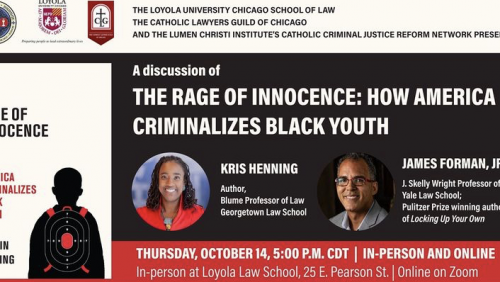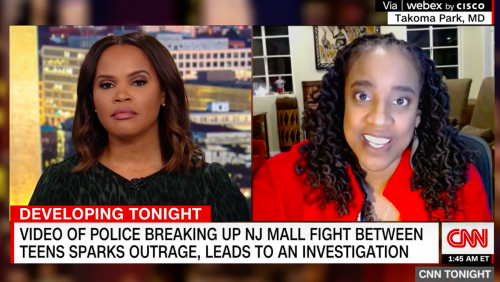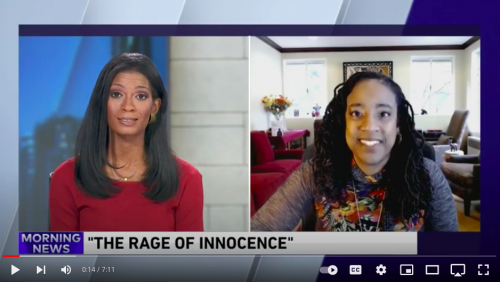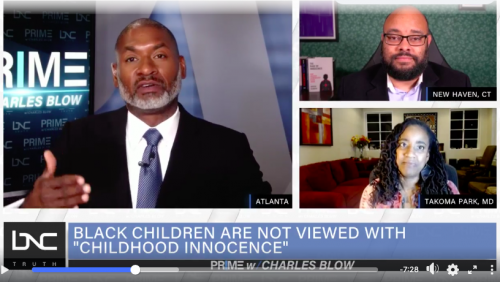In her new book published in September 2021, Georgetown Juvenile Justice Clinic & Initiative Director Kris Henning 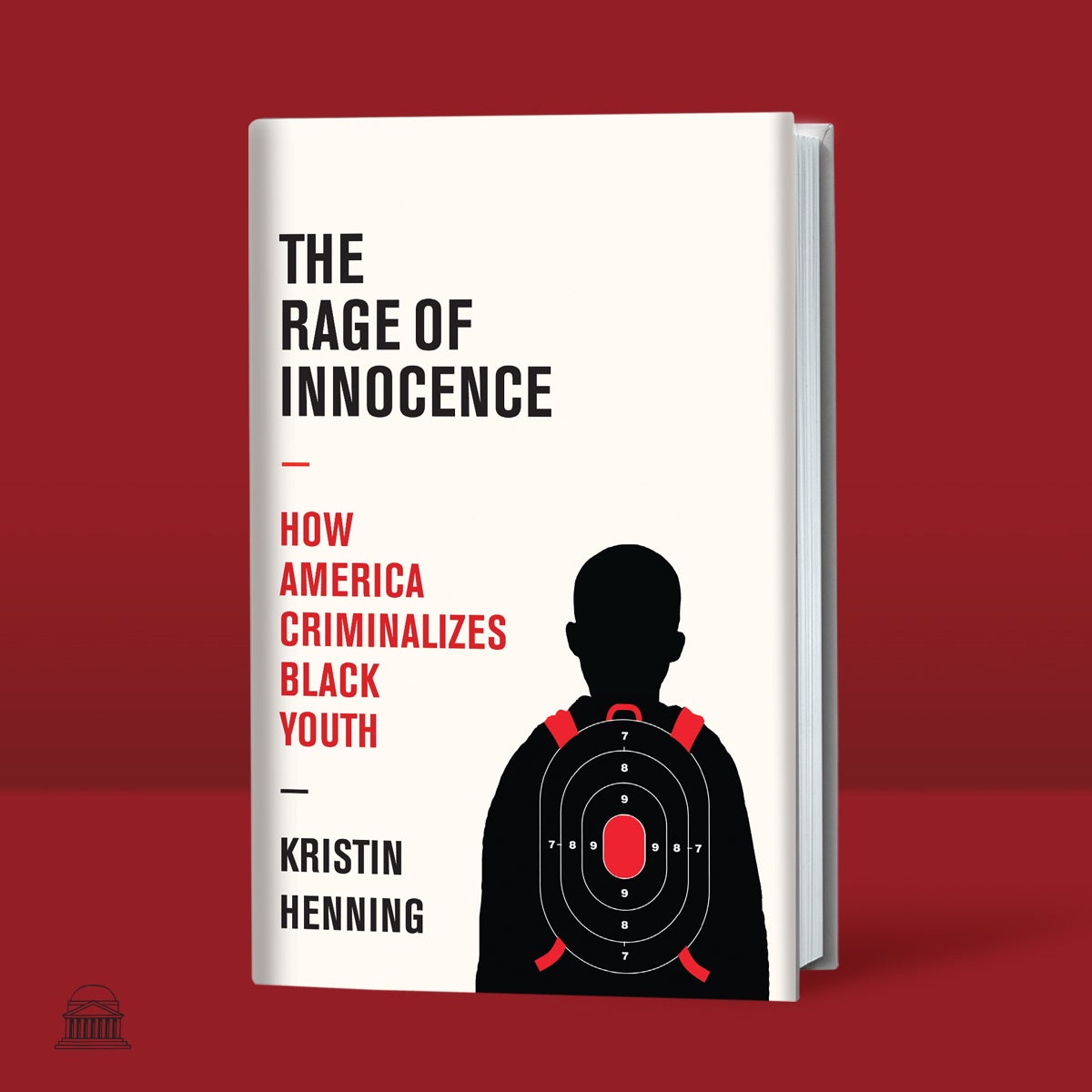 confronts America’s irrational and manufactured fears of Black youth and makes a compelling case that our nation’s obsession with policing and incarcerating Black America begins with Black children. Unlike White youth, who are afforded the freedom to test boundaries, experiment with sex and drugs, and figure out who they are and who they want to be, Black youth are seen as a threat to White America and denied the privilege of healthy adolescent development.
confronts America’s irrational and manufactured fears of Black youth and makes a compelling case that our nation’s obsession with policing and incarcerating Black America begins with Black children. Unlike White youth, who are afforded the freedom to test boundaries, experiment with sex and drugs, and figure out who they are and who they want to be, Black youth are seen as a threat to White America and denied the privilege of healthy adolescent development.
Weaving together powerful narratives and persuasive data, Kris examines the criminalization of Black adolescent play and sexuality, the demonization of Black fashion, hair, and music, and the discriminatory impact of police in schools. The Rage of Innocence lays bare the long-term consequences of racism and trauma that Black children experience at the hands of police and their vigilante surrogates and explains how discriminatory and aggressive policing has socialized a generation of Black teenagers to fear and resent the police.
Especially in the wake of the recent unprecedented, worldwide outrage at racial injustice and inequality, The Rage of Innocence is an essential book for our moment. Learn more, get your copy, and join a book tour event!
Media Links
Featured News
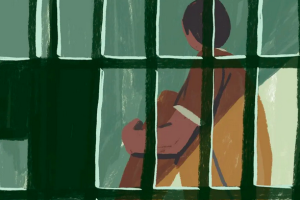 April 20, 2022
April 20, 2022
The superpredator myth infected our legal system even when judges didn’t invoke it openly. Kristin Henning, a law professor at Georgetown and the author of “The Rage of Innocence: How America Criminalizes Black Youth,” told us: “Looking back to cases from the 1990s, you won’t see too many judges use the word ‘superpredator,’ but it was definitely in the air. You can see it in the juvenile transfer laws that allowed young people to be tried as adults and in the long sentences many teenagers got. They all stem from that same idea that Black children must be feared and controlled. The Belcher opinion rejects that way of thinking.”
Clink the link to read the full article.
Featured News
 March 3, 2022
March 3, 2022
"As a country, we tend to make decisions that are reactionary based on one or two high-profile incidents, instead of following the evidence and research on what is most effective and equitable." - Kristin Henning
Click the link to read the full article.
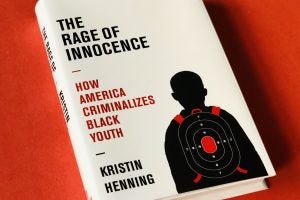 February 10, 2022
February 10, 2022
From stop and frisk to metal detectors in schools, many Black youngsters are regularly treated with suspicion in their own communities. This has damaging and lasting effects on their lives. Read the full interview with Kristin Henning in Current Affairs.
 November 2, 2021
November 2, 2021
“Our deeply embedded biases about Black children being dangerous applies both to boys and girls, and I think we forget that,” said Kristin Henning, a Georgetown Law professor. “We wouldn’t even think about stopping a White girl in quite the way we stop a Black girl.”
Featured News
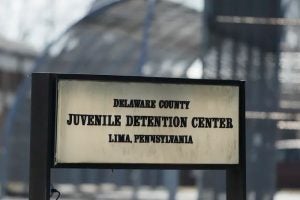 October 29, 2021
October 29, 2021
Recent headlines out of Tennessee once again tell a disturbing story of judicial authority run amok, with children in the crosshairs. As revealed by ProPublica, a juvenile court judge in Rutherford County, Tennessee, has been locking up almost exclusively Black children, as young as 7 years old, for behavior that is not even a crime. Click the link to read the rest.
 October 20, 2021
October 20, 2021
Kristin Henning, director of the Juvenile Justice Clinic at Georgetown University’s law school, has represented children accused of delinquency for more than 20 years and said many encounters escalate “from zero to 100” in seconds — often because police interpret impulsive adolescent behavior as a threat.
“When you are close to the kids, you work with the kids every day, you see that they are just kids, and they’re doing what every other kid does,” she said. “Talking back, being themselves, experimenting, expressing their discomfort, expressing their displeasure about something — that’s what kids do.”
 September 27, 2021
September 27, 2021
“The vast majority — 80 percent or more — of crimes committed by children are non-serious crimes,” she says. “We could reduce law enforcement engagement with young people by 80 percent and we would all be fine, but people don’t believe that.”
Read the rest of the interview with Georgetown Juvenile Justice Clinic and Initiative Director Kristin Henning in the LA Times.


